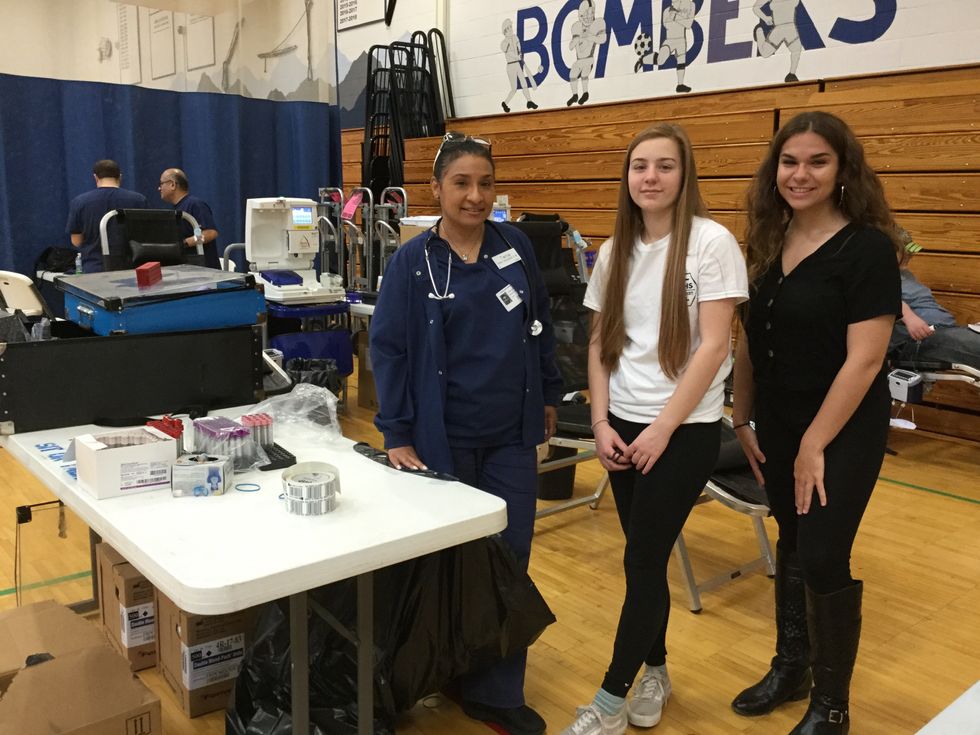HARLEM VALLEY — With New York State on PAUSE, residents are being asked to go out only when they need to pick up essentials such as food and medicine. But there is one essential that is desperately needed and that must be given rather than received: life-saving blood.
According to Red Cross External Communications Manager for the Northeast area Kelly Isenor, supplies everywhere are dangerously low as thousands of blood drives have been canceled as a result of the COVID-19 crisis.
Some of the cancellations have occurred in part because regular locations, such as government buildings, churches, libraries and fire stations, are closed. Isenor asked that specific locations not be listed here because the situation is tremendously “fluid,” with sites changing from day to day.
Shortages are also happening because even with some locations still available, she said many regular donors are nervous about the procedure, viewing it as potentially dangerous.
That fear, however, Isenor said, is unfounded as every precaution is taken to ensure safe donations. She noted that before anyone — be it a donor or a site worker — can enter a blood drive, they are screened for any sign of the virus with temperatures taken as a matter of course.
Any worker who is scheduled to be on duty is not even allowed to report in for a symptom check if there has been any indication they might be ill.
Both before, during and after donations, hand sanitizer is used constantly and areas are carefully wiped down.
In the donation area, density is kept to the recommended distances with floors marked and beds and chairs kept a minimum of 6 feet away.
“We are asking for healthy donors,” Isenor said, adding that all donations are “deeply appreciated.”
Help from both donors and sponsors is desperately needed — especially as New York state has had more positive coronavirus cases than any other country in the world.
Isenor noted that the critical need will continue even after the virus abates.
“This is a marathon, not a sprint,” she said.
Those interested in assisting in any way may call 1-800-redcross or go to www.redcrossblood.org.
With so many local drives canceled, a site may not be nearby, but a road trip might provide a pleasant diversion from self-isolation — and it could save a life.
Earlier this month, Governor Andrew Cuomo specifically asked New Yorkers who have recovered from COVID-19 to contact the state and donate blood. In a state-wide update, Cuomo said “individuals who tested positive and then recovered from the virus may have convalescent plasma in their blood, which has antibodies against the virus and could help with the development of a treatment for the virus.”
On Thursday, April 23, Nuvance Health announced the launching of three Convalescent Plasma Donation Centers in the region, “giving people who have recovered from COVID-19 an opportunity to donate potentially life-saving plasma to critically ill patients fighting the virus.”
Nuvance Health is a network of nonprofit hospitals and healthcare professionals in the Hudson Valley and western Connecticut, including nearby Sharon Hospital in Sharon, Conn.
“Plasma contains antibodies that can fight infection,” said Dr. James Nitzkorski, a surgical oncologist at Nuvance Health. “When someone recovers from a COVID-19 infection, they do so, in part, because the antibodies can neutralize the virus and make someone better. That plasma is then taken from a donor, prepared and then given to a critically-ill, COVID-19 patient.”
The three hospitals that will be open for plasma donations are Vassar Brothers Medical Center in Poughkeepsie, and Danbury and Norwalk hospitals in Connecticut.
Nuvance said it has been using plasma for COVID-19 patients, and procuring donations by working with both the New York Blood Center and the American Red Cross.
To donate, one must meet the following criteria as set forth by the Food and Drug Administration (FDA):
• COVID-19 confirmation with either positive swab or antibody test.
• 14-day, symptom-free interval with a repeat negative swab.
• 28-day, symptom-free interval with no need for a repeat swab.
To donate through Nuvance, register at www.nuvancehealth.org/plasmadonorregistration.
Information about how to donate through the New York Blood Center or the American Red Cross is available at www.nybc.org/donate-blood/convalescent-plasma-covid-19-donor-request-form/.
Related Articles Around the Web









 ‘Square Quilting painting' by ransomeAlexander Wilburn
‘Square Quilting painting' by ransomeAlexander Wilburn






